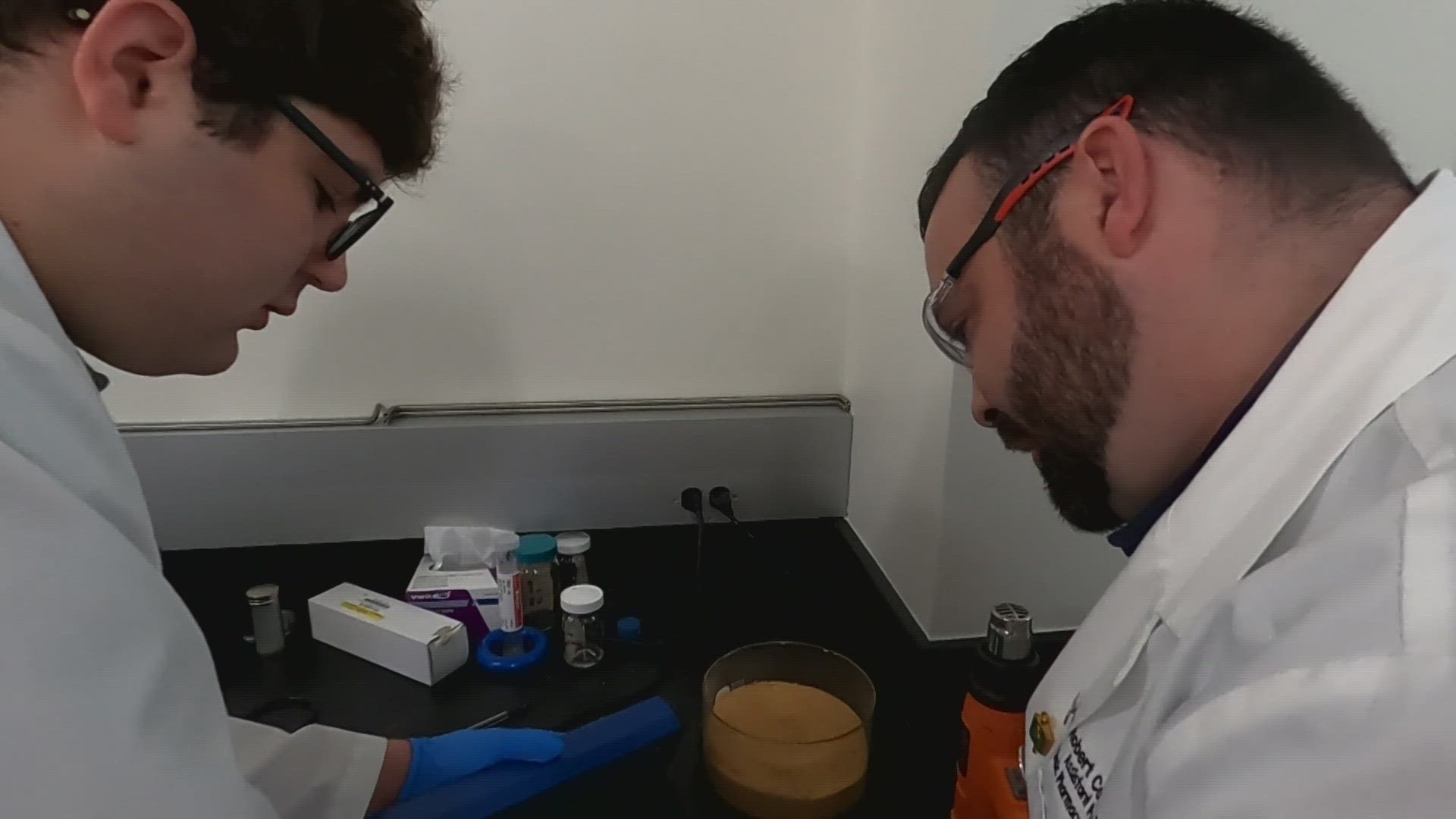HIGH POINT, N.C. — Dr. Robert Coover has been working on a cure for neurofibromatosis 1, or NF1, for the past 4 at High Point University’s School of Pharmacy.
“NF1 is a genetically inherited disease that predisposes patients to tumors of the nerve, and a number of cognitive issues, and by nature of it being inherited, it is an immediate impact on pediatric patients," Dr. Coover said.
While the disease is not always deadly, if the tumors turn malignant, it can lead to death.
“It happens or occurs roughly in one in 3000 people and what I like to say is that not only is it a lot more common than you might think, but it’s the most common disease you’ve probably never heard of.” Dr. Coover added.
So, this summer, he’s been working with HPU students to research possible treatments.
We are definitely running a lot more experiments in the summer than we are during the school year. We have more time to run more experiments," research assistant Pryia Thornton shared.
For research assistant Priya Thornton, her desire to work with Dr. Coover and conduct this research is one that has personal meaning.
“My mom had breast cancer. She was diagnosed in my sophomore year, it was stage zero, but it definitely still hit our family hard because it was the first person that we knew personally that had cancer. I saw her recover from her double mastectomy, which was really hard to see my mom go through being such a hard thing. So, cancer is definitely something that personally affected my family," Thornton said.
Dr. Coover can relate to that all too well.
“One of my siblings, and my father, had the disease and both of them are no longer with us today. So, I use that as a large source of fuel, motivation, and just general passion to work on the whole aspect of the disease," Dr. Coover said.
Now, with the funding he’s received from grants, he’s hoping this passion for NF1 research lives on in the students he works with.
"My genuine hope is that the students will do better than me. After they’re done here, whether that’s to go onto the next level or go straight to their jobs, or if it’s to continue research at whatever level, I hope they’ll take from here some amazing things that they have been doing," said Dr. Coover.
A paper with data findings around NF1's cognitive issues will be published later this year.

